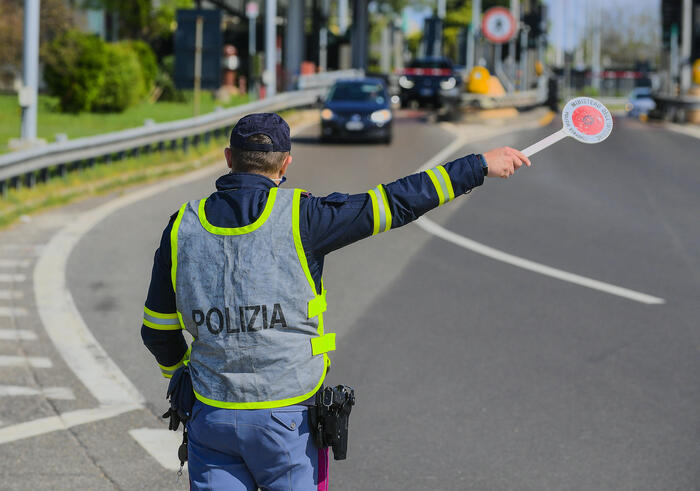In 2023, more than one in four citizens (26.6%) judged the place where they live to be unsafe: this happens more frequently in the South (30.5%) and in the Islands (38.4%).
Among the crimes that most concern Italians in terms of security, theft in the home (26.6%), physical aggression (17.7%) and the fear of being mugged (11.1%) stand out.
The theft of personal data on the Internet worries 9.9% of citizens, while fraud, theft of parked cars and robbery reach percentages of around 7%.
4.8% are afraid of being subjected to sexual violence and 2.9% of being subjected to other crimes.
This is what emerges from a survey conducted by Eurispes in collaboration with the public safety department and the central directorate of the criminal police.
One out of four Italians would buy a weapon for self-defense
- Just over one in four Italians (27.1%) say they would buy a weapon for self-defense, 72.9%, on the contrary, would not.
With regard to the judgment on the legitimacy of possession of firearms, 44.8% of Italians consider it a danger, because weapons can end up in the wrong hands, 19.2% believe that it is a right to be reserved only for particular categories exposed to risks (merchants, etc.), 18.4% think, however, that it represents the possibility for any citizen to defend themselves from ill-intentioned people.
Almost half of the sample expressed their fear of owning weapons, the clear majority showed general caution.
The results confirm, according to the research, a widespread cultural resistance in our country to the possession of weapons, even in the
A fifth of Italians are victims of online shopping scams
- Over a fifth of Italians report having been the victim of scams in online purchases (21.6%).
The second most common computer crime is deceptive requests for money - by people posing as friends or relatives in difficulty (18.7%), the third is the theft of authentication data such as name, password, bank details, etc. .
(17.8%).
This is what emerges from a survey conducted by Eurispes in collaboration with the public safety department and the central directorate of the criminal police.
Following are ransomware (computer viruses that make computer data inaccessible and ask for the payment of a ransom to restore them - this happened to 6.5%) and revenge porn, consisting of the dissemination, without consent, of intimate photos or videos ,
Domestic violence, 24% of the victims turn to the authorities
- With regard to domestic violence, in more than one case out of ten (11.6%) there are humiliations and insults in the family sphere;
5.6% suffered threats, 4.5% were victims of persecution, 3.8% of abuse in the family.
More than 3% suffered injuries and beatings, 1.8% segregation at home, 1.3% sexual violence.
Compared to the violence suffered, 31.6% of the victims defended themselves;
24.2% of victims did nothing;
19.5% asked for help from relatives, friends or colleagues.
For one out of 5 Italians, crimes are mainly committed by foreigners
- 47% of Italians believe that crimes are committed equally by Italians and foreigners.
One person out of five thinks instead that the authors are mainly foreigners (20.7%) and only 6.1% attribute the blame mainly to Italians.
On the other hand, 26.2% of people do not answer the question of who are the main perpetrators of crimes between Italians and foreigners.
Crimes committed by minors are on the increase, +11% in 2022
- In the last two years, reports referring to minors reported or arrested have progressively increased: in 2021 there were 30,405 minors (+15.7% compared to 2020) and 33,723 in 2022 (+10.9% compared to 2021).

